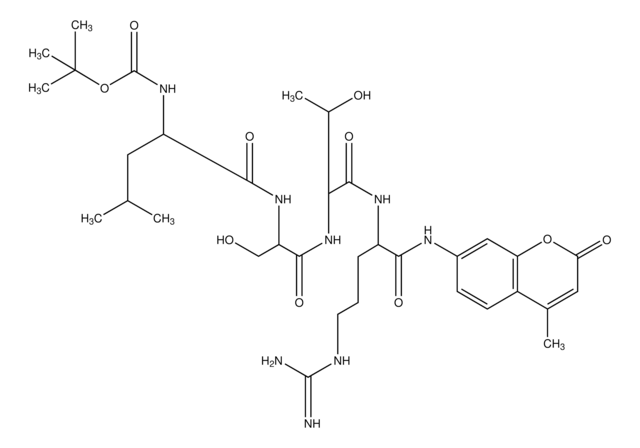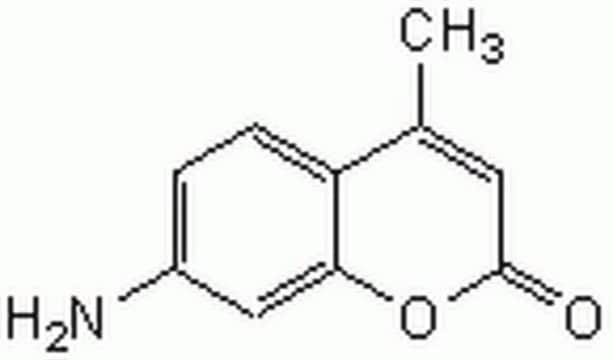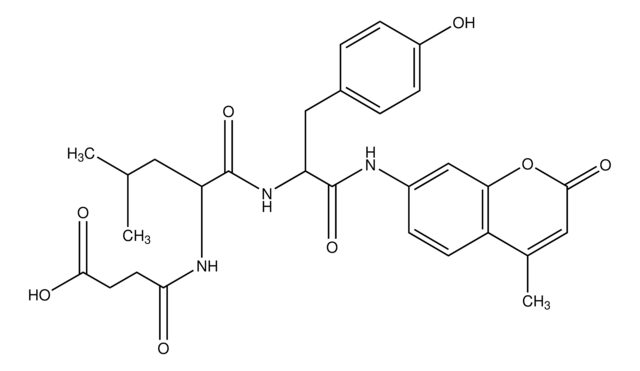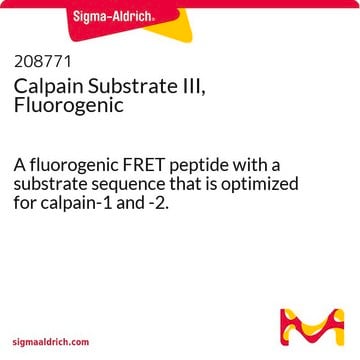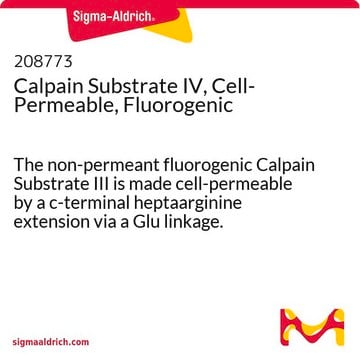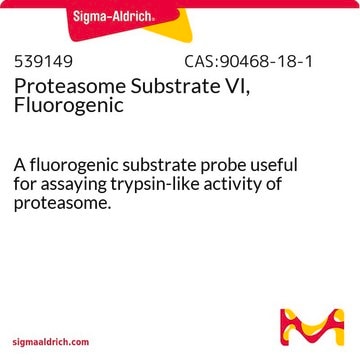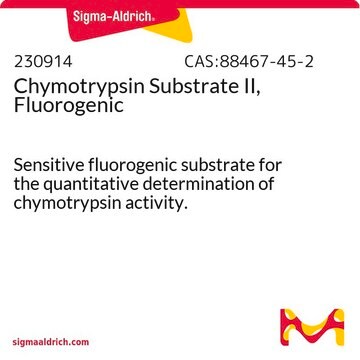S6510
N-Succinyl-Leu-Leu-Val-Tyr-7-Amido-4-Methylcoumarin
≥90% (HPLC)
About This Item
Recommended Products
Assay
≥90% (HPLC)
form
powder
solubility
0.1% trifluoroacetic acid in acetonitrile: water (3:1): 1 mg/mL, clear, colorless
storage temp.
−20°C
SMILES string
CC(C)CC(NC(=O)CCC(O)=O)C(=O)NC(CC(C)C)C(=O)NC(C(C)C)C(=O)NC(Cc1ccc(O)cc1)C(=O)Nc2ccc3C(C)=CC(=O)Oc3c2
InChI
1S/C40H53N5O10/c1-21(2)16-29(42-33(47)14-15-34(48)49)38(52)43-30(17-22(3)4)39(53)45-36(23(5)6)40(54)44-31(19-25-8-11-27(46)12-9-25)37(51)41-26-10-13-28-24(7)18-35(50)55-32(28)20-26/h8-13,18,20-23,29-31,36,46H,14-17,19H2,1-7H3,(H,41,51)(H,42,47)(H,43,52)(H,44,54)(H,45,53)(H,48,49)
InChI key
UVFAEQZFLBGVRM-UHFFFAOYSA-N
Amino Acid Sequence
Application
Biochem/physiol Actions
Packaging
Substrates
Hazard Statements
Precautionary Statements
Hazard Classifications
Aquatic Chronic 4
Storage Class Code
11 - Combustible Solids
WGK
WGK 3
Personal Protective Equipment
Certificates of Analysis (COA)
Search for Certificates of Analysis (COA) by entering the products Lot/Batch Number. Lot and Batch Numbers can be found on a product’s label following the words ‘Lot’ or ‘Batch’.
Already Own This Product?
Find documentation for the products that you have recently purchased in the Document Library.
Customers Also Viewed
Articles
DISCOVER Bioactive Small Molecules for Nitric Oxide & Cell Stress Research
DISCOVER Bioactive Small Molecules for Nitric Oxide & Cell Stress Research
DISCOVER Bioactive Small Molecules for Nitric Oxide & Cell Stress Research
DISCOVER Bioactive Small Molecules for Nitric Oxide & Cell Stress Research
Our team of scientists has experience in all areas of research including Life Science, Material Science, Chemical Synthesis, Chromatography, Analytical and many others.
Contact Technical Service




